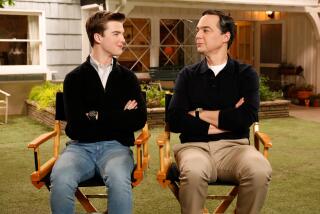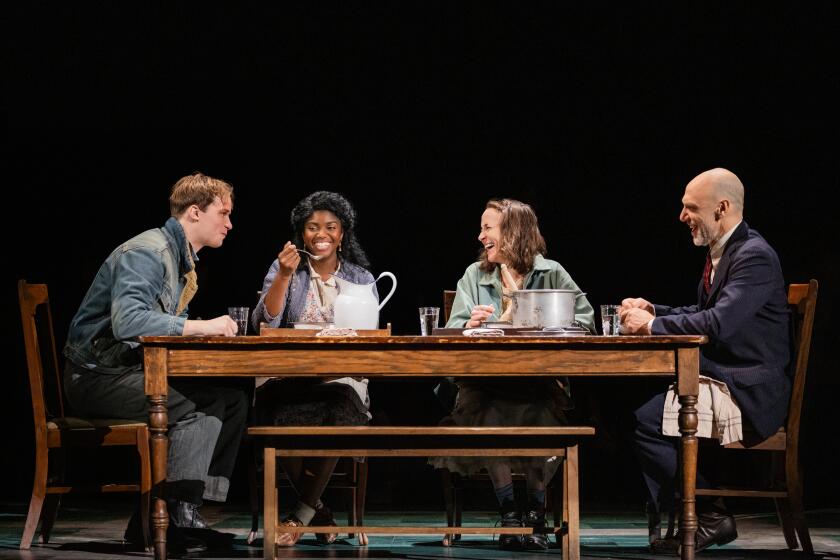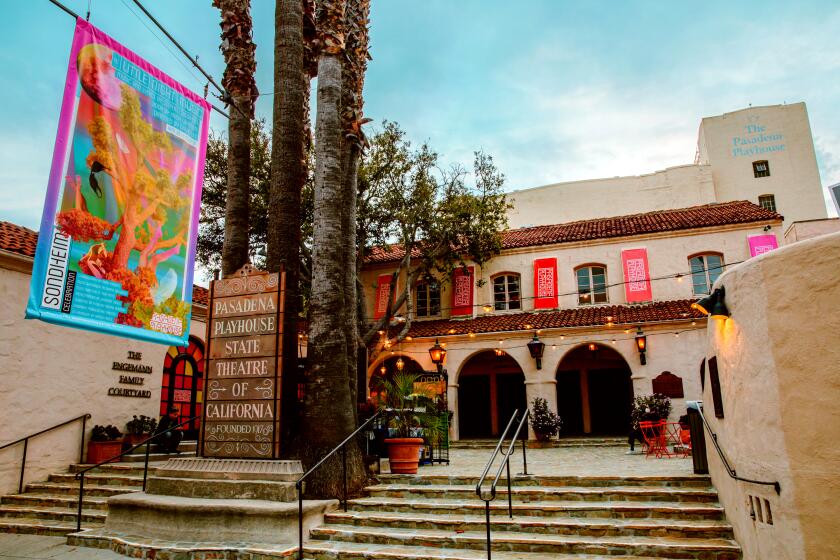Sierra’s Sun Shines at Music of Changes Concert
“Because I am Puerto Rican,” Roberto Sierra has written, “my music is Puerto Rican. Always.”
Sure enough, his insinuating dance rhythms and bold use of color suggest a composer who craves island sunshine. And that sunshine pervaded the outstanding performances in the Music of Changes concert Thursday night at the Herbert Zipper Concert Hall of the Colburn School.
But Sierra seems just as comfortable indoors. His life is not at the beach but at the academy: He teaches at Cornell. His musical connections are wide. He has served as composer-in-residence of the Milwaukee Symphony under a Czech music director, Zdenek Macal, and of the Philadelphia Orchestra under its German music director, Wolfgang Sawallisch. His pieces almost always have Spanish titles, but one source for hearing some of his orchestral work is on a CD by the St. Christopher Chamber Orchestra Vilnius, recorded in Latvia. Three years ago, Evelyn Glennie performed his percussion concerto with the L.A. Philharmonic.
The concerto was outgoing, splashed with color. The same can be true of the chamber pieces, but they demonstrate an interior side as well. Indeed, for all the surface spirit of his music, Sierra does not appear to be a spontaneous composer. He likes to limit his material, such as pitches or intervals, and then carefully solve the technical problems he sets for himself. Often in the chamber works, Sierra distrusts his own flamboyance. But he doesn’t always succeed: When that flamboyance breaks out is when he becomes disarmingly successful.
On this program, that happened most often in the more modest works. In a brilliant short piece for solo clarinet--”Ritmorroto” (Broken Rhythm), stunningly played by Joel Schekman--a performer must put those broken rhythms back together into sinuous melody. Meanwhile, in two short pieces for flute and guitar meant to describe imaginary situations that Columbus might have encountered in the New World, alluring melody is weirdly fractured by microtones.
Sierra has a flair for arrangement. In “Cancionero Sefardi” (Sephardic Songbook), for soprano (Julieanne Klein was the expressive guest singer) and small ensemble, startling textures included a Cagean prepared piano along with klezmer clarinet. Gestures start to repeat themselves in some of the works, such as chords bursting at the seams and a tendency to furiously run up and down the scales. But invariably a magical new sound or a new way of looking at familiar material would appear at some point to freshen up the music.
The concert ended with a premiere, “Turner,” which Music of Changes commissioned for its core ensemble of flute, clarinet, violin, cello and piano. Maybe it had just been a long evening, but Sierra’s reaction here to six paintings by Turner seemed to be his most conventional work on the program. Turner’s pigments shimmer and so did all this impressionistically sparkling, watery music, expertly colored though it was.
Still, the performance, led by the group’s charismatic music director, Maxim Eshkanazy, was an exciting one. This was the last concert in the first season of Music of Changes--which also includes flutist Ellen Burr, violinist Limor Toren, cellist Jacob Szekely and pianist Louise Thomas.
There is much this young ensemble (most of the players are recent USC grads) has to learn about putting on concerts. The program wasn’t ideally balanced and the program book something of a disaster.
But more important, the accomplishment, dedication and spirit of these players, who devote each concert to the works of a single composer, proved irresistible. With proper guidance and support, this could become a major group.
More to Read
The biggest entertainment stories
Get our big stories about Hollywood, film, television, music, arts, culture and more right in your inbox as soon as they publish.
You may occasionally receive promotional content from the Los Angeles Times.







